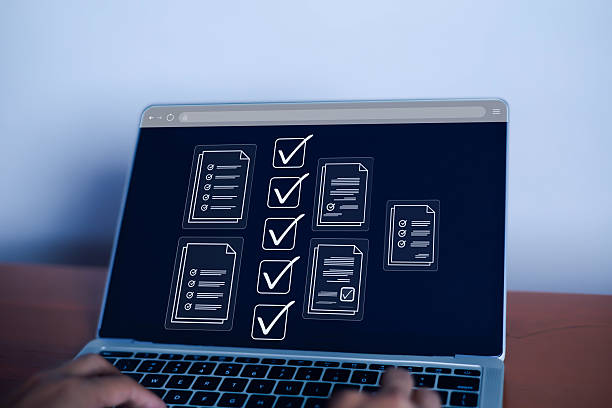What is an Artificial Intelligence Robot? Definition and Concept
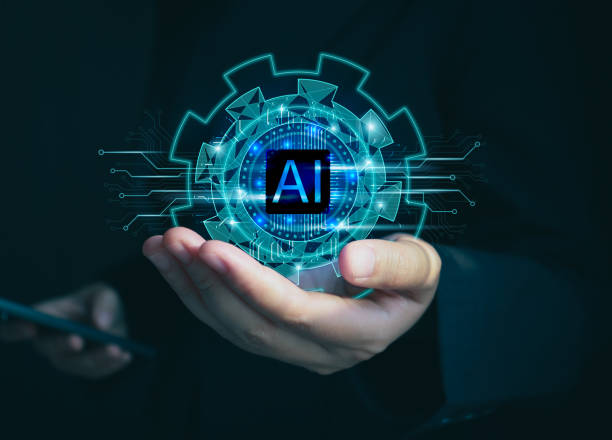
#Artificial Intelligence Robot is a combination of two important fields of science and technology: robotics and artificial intelligence.
In simple terms, an AI robot is a physical or software machine that uses artificial intelligence algorithms to perform tasks that typically require human intelligence.
These tasks can include learning, reasoning, problem-solving, pattern recognition, natural language understanding, and even creativity.
AI robots, due to their advanced capabilities, are changing various industries and our daily lives.
In fact, these robots are not only capable of performing repetitive and tedious tasks with high accuracy, but they can also make intelligent decisions.
To better understand #Artificial Intelligence Robot, we must pay attention to its components.
Firstly, robots typically include sensors, actuators, and a controller.
Sensors collect information from the environment, actuators perform physical movements, and the controller (which can be a computer or microcontroller) coordinates these components.
Secondly, artificial intelligence includes algorithms and models that allow the robot to learn from data, recognize patterns, and make decisions.
The AI robot, as an intelligent entity, can work independently or in collaboration with humans.
Artificial Intelligence used in the robot allows it to operate in complex and unpredictable environments.
Does your company’s website perform as befits your brand? In today’s competitive world, your website is your most important online tool. Rasaweb, specializing in professional corporate website design, helps you to:
✅ Attract credibility and customer trust
✅ Convert website visitors into customers
⚡ Get a free consultation!
Types of Artificial Intelligence Robots Based on Application
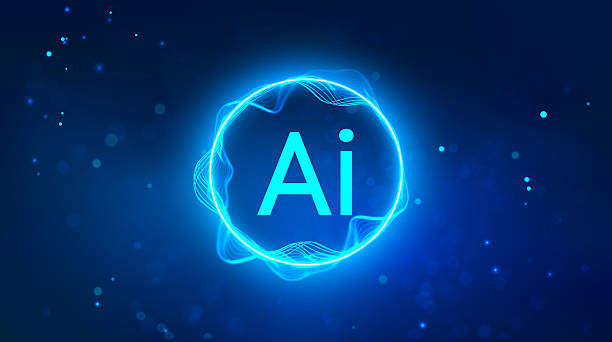
AI robots are divided into different categories based on their applications.
Industrial robots are used to automate production and assembly processes in factories.
These robots typically have high accuracy and speed and can perform repetitive tasks continuously.
Service robots are designed to provide various services to humans.
These robots can be used in hospitals, hotels, restaurants, and even homes.
Medical robots are used to assist surgeons in complex surgeries, rehabilitate patients, and provide remote healthcare.
Space robots are designed to explore other planets and conduct scientific research in space.
These robots must be able to withstand harsh space conditions and operate independently.
Military robots are used to perform various tasks on the battlefield, such as reconnaissance, mine clearance, and equipment transport.
Educational robots are designed to help students learn different concepts.
These robots can be used as a private tutor or an interactive tool for learning.
Artificial Intelligence Robot plays an important role in each of these areas and helps to improve efficiency, accuracy, and safety.
Advantages and Disadvantages of Using Artificial Intelligence Robots
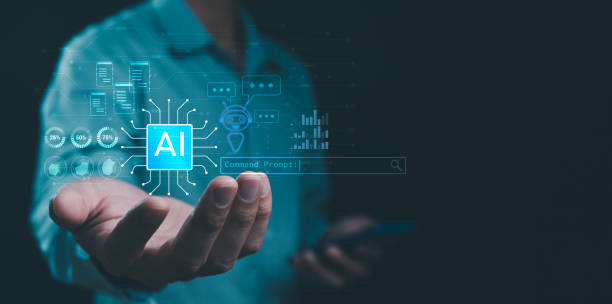
The use of artificial intelligence robots has several advantages and disadvantages.
The main advantages include increased productivity, reduced costs, improved quality, increased safety, and performing tasks that are dangerous or impossible for humans.
Robots can work continuously and without fatigue, reduce human errors, and help perform complex and precise tasks.
Also, the use of robots can reduce the need for human labor and, consequently, reduce production and service costs.
However, the use of artificial intelligence robots also has disadvantages.
These disadvantages include the high cost of purchasing and maintaining robots, the need for expertise in programming and repairing robots, concerns about job losses by humans, and ethical issues related to the use of robots in important decision-making.
Also, robots may not function correctly in unexpected or complex situations and require human supervision and intervention.
Deciding on the use of artificial intelligence robots should be done by considering all the advantages and disadvantages and taking into account the specific conditions of each application.
| Advantages | Disadvantages |
|---|---|
| Increased productivity | High cost |
| Reduced costs | Need for expertise |
| Improved quality | Job loss |
| Increased safety | Ethical issues |
| Performing dangerous tasks | Inappropriate performance in complex situations |
Challenges of Developing and Implementing Artificial Intelligence Robots

The development and implementation of artificial intelligence robots comes with several challenges.
One of the most important challenges is the collection and preparation of training data.
Artificial intelligence algorithms need a large amount of high-quality data to learn and improve their performance.
Collecting and labeling this data can be time-consuming and costly.
Another challenge is choosing the right algorithm for each application.
Different artificial intelligence algorithms have different strengths and weaknesses, and choosing the right algorithm for a specific application requires knowledge and experience.
Also, evaluating and validating the performance of AI robots is an important challenge.
It must be ensured that the robots perform acceptably in different conditions and when faced with new data.
Security and privacy issues are also among the important challenges in the development and implementation of AI robots.
Misuse of robots and unauthorized access to personal data must be prevented.
Finally, ethical issues related to the use of AI robots should also be considered.
It must be ensured that robots operate fairly and without discrimination and respect human rights and values. Artificial Intelligence Robot needs cooperation between researchers, engineers, policymakers, and ethics experts to solve these challenges.
Are you tired of having visitors to your online store but no sales? Rasaweb solves your main problem by designing professional online stores!
✅ Significant increase in sales with targeted design
✅ Flawless user experience for your customers
⚡ Get a free consultation!
Applications of Artificial Intelligence Robots in Industry
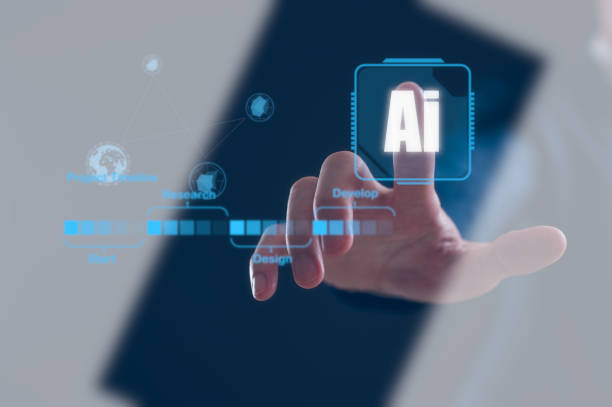
Artificial Intelligence Robot has extensive applications in industry.
In production lines, robots can be used to perform repetitive and precise tasks such as assembling parts, welding, painting, and packaging.
These robots can help increase production speed, reduce costs, and improve product quality.
In warehousing and logistics, robots can be used to move and sort goods, load and unload trucks, and manage inventory.
These robots can help reduce delivery times, reduce transportation costs, and improve accuracy in inventory management.
In quality inspection, robots can be used to detect defects and flaws in products.
These robots can inspect products quickly and accurately and prevent defective products from entering the market.
In maintenance and repairs, robots can be used to inspect equipment, diagnose problems, and perform repairs.
These robots can help reduce equipment downtime, reduce repair costs, and improve safety.
Artificial Intelligence Robot is constantly being developed and expanded in industry, and it is expected to play a more important role in automating processes and improving efficiency in the future.
Artificial Intelligence Robots in Medicine and Health
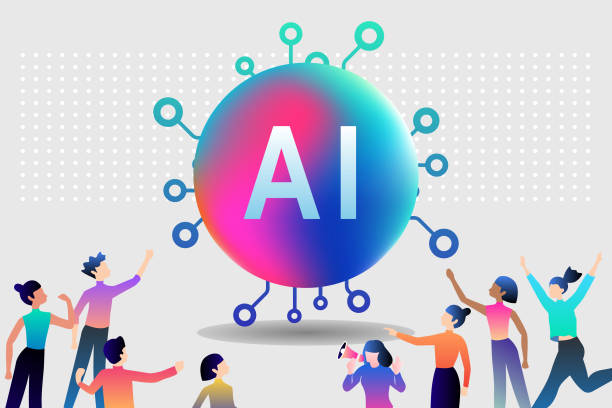
Artificial Intelligence Robot also has diverse and growing applications in the field of medicine and health.
Surgical robots can assist surgeons in performing complex and precise operations.
These robots have high accuracy and stability and can help reduce operation time, reduce bleeding, and improve surgical outcomes.
Rehabilitation robots can help patients regain their motor skills.
These robots can help perform rehabilitation exercises, improve balance and coordination, and increase muscle strength.
Nurse robots can assist nurses in caring for patients.
These robots can help measure vital signs, distribute medication, and move patients.
Pharmacist robots can assist pharmacists in preparing and dispensing medications.
These robots can help reduce errors in medication preparation, increase the speed of medication dispensing, and improve inventory management.
Artificial Intelligence Robot is constantly being developed and expanded in medicine and health, and it is expected to play a more important role in diagnosing diseases, treating patients, and providing healthcare in the future.
Applications of AI robots in medicine
Artificial Intelligence Robots in Education

Artificial Intelligence Robot can play an important role in transforming education.
Educational robots can help students learn different concepts.
These robots can be used as a private tutor or an interactive tool for learning.
Robots can help provide personalized education to students.
According to the needs and abilities of each student, robots can provide appropriate educational content.
Robots can help assess student performance and provide feedback.
By analyzing students’ answers, robots can identify their strengths and weaknesses and provide appropriate feedback.
Robots can help automate administrative and management tasks in schools.
These robots can help with student registration, class scheduling, and resource management.
Artificial Intelligence Robot in education can help improve the quality of education, increase access to education, and reduce the costs of education.
| Strengths | Weaknesses |
|---|---|
| Personalized education | Initial cost |
| Accurate assessment | Need for training data |
| Automation of administrative tasks | Privacy concerns |
| Easy access to education | Need for maintenance and repair |
The Future of Artificial Intelligence Robots and Upcoming Prospects
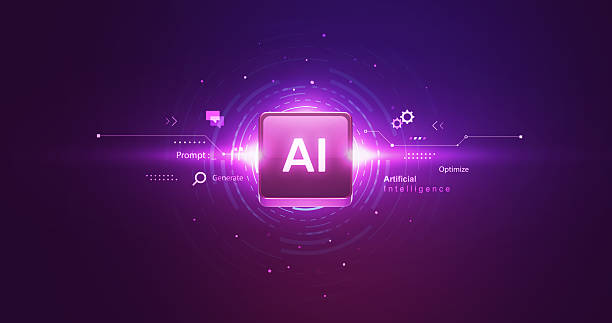
The future of artificial intelligence robots is very bright and full of potential.
With continuous advancements in the fields of artificial intelligence, robotics, and related technologies, it is expected that robots will be able to perform more complex and diverse tasks in the future.
Robots can play a more prominent role in our daily lives.
Home robots can help with household chores, care for children and the elderly, and provide various services to residents.
Robots can operate in dangerous and inaccessible environments for humans.
Exploration robots can help explore other planets and collect scientific information.
Robots can help improve the quality of human life.
Medical robots can help diagnose and treat diseases, rehabilitate patients, and provide healthcare.
However, the development and use of artificial intelligence robots must be done carefully and responsibly.
Ethical, security, and social issues related to robots must be addressed to prevent their misuse and fully benefit from their advantages.
Artificial Intelligence Robot, with its countless potentials, can help transform various industries and improve human lives.
Does your current online store design not generate the expected sales?
Rasaweb specializes in professional online store design!
✅ Attractive and user-friendly website aimed at increasing sales
✅ High speed and security for an ideal shopping experience⚡ Get a free online store design consultation with Rasaweb!
Ethical Considerations in Designing and Using Artificial Intelligence Robots
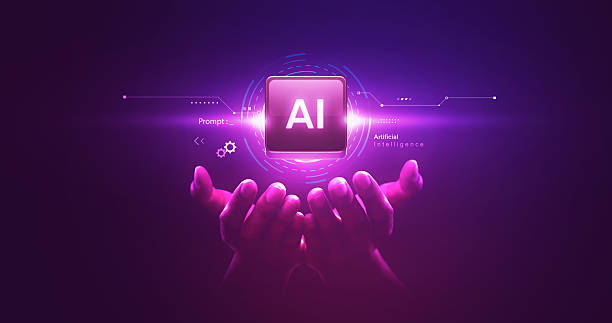
The design and use of artificial intelligence robots entails important ethical considerations that must be carefully addressed.
One of the most important considerations is the issue of accountability.
If an artificial intelligence robot makes a wrong decision or causes harm, who will be responsible? The designer, the manufacturer, the user, or the robot itself? This issue has not yet been fully resolved and requires further discussion and examination.
Another ethical consideration is the issue of privacy.
Robots can collect a lot of information about their users.
How can this information be protected and its misuse prevented? A third ethical consideration is the issue of discrimination.
Artificial intelligence algorithms can act discriminatorily based on their training data.
How can this discrimination be prevented and ensure that robots operate fairly and without discrimination? A fourth ethical consideration is the issue of safety.
Robots must be designed to be safe for humans and the environment.
How can the occurrence of accidents caused by the operation of robots be prevented? These ethical considerations require careful discussion and examination by researchers, engineers, policymakers, and ethics experts.
It must be ensured that the development and use of Artificial Intelligence Robot are done ethically and responsibly and are beneficial to society.
ethicsinai
Key Points for Choosing and Buying an Artificial Intelligence Robot
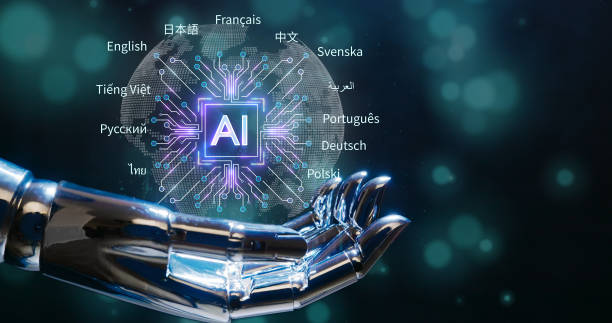
Choosing and buying a suitable artificial intelligence robot can be an important and complex decision.
To be able to make the best choice, you must pay attention to the following key points: Precisely define your needs.
Before anything else, you need to know what you expect from the robot and what tasks you want to entrust to it.
By defining your needs, you can narrow down your options and make a better choice.
Carefully examine the features of the robot.
Pay attention to the robot’s accuracy, speed, power, safety, reliability, and other important features.
Make sure the robot has the features you need.
Compare the robot’s price with your budget.
The price of robots can vary greatly.
Before buying, compare the prices of different robots with each other and make sure that the robot’s price is compatible with your budget.
Read the opinions of other users.
Before buying, read the opinions of other users about the robot.
These opinions can help you better understand the robot’s performance and capabilities.
Buy from a reputable seller.
Make sure you buy the robot from a reputable and reliable seller.
A reputable seller can provide you with suitable after-sales services.
By following these key points, you can choose and buy a suitable artificial intelligence robot and benefit from its advantages.
Artificial Intelligence Robot is a long-term investment, so choose carefully.
FAQ
| Row | Question | Answer |
|---|---|---|
| 1 | What is an AI Robot? | An AI robot is a machine that can understand, reason, learn, and solve problems, and can perform complex tasks with relative autonomy. |
| 2 | What are the most important applications of AI robots? | Main applications include industrial production, customer service (chatbots), medicine and surgery, self-driving transportation, space exploration, and military affairs. |
| 3 | What is the main difference between an AI robot and a regular robot? | A regular robot only follows programmed instructions, while an AI robot can learn from data, make decisions, and adapt to new environments. |
| 4 | How do AI robots learn? | They identify patterns and improve their performance through machine learning algorithms (such as deep learning, reinforcement learning) and processing vast amounts of data. |
| 5 | Can AI robots have emotions? | Currently, AI robots do not have real emotions in the human sense. They can mimic or detect emotions, but they do not understand and experience them. |
| 6 | What are the current limitations of AI robots? | Limitations include the need for a lot of data, the inability to understand abstract concepts, the lack of real creativity, ethical issues, and challenges in generalizing to new environments. |
| 7 | What is the role of AI in the development of Humanoid robots? | AI helps humanoid robots walk, maintain balance, understand the surrounding environment, interact with humans, and perform complex tasks. |
| 8 | How is the future of AI robots predicted? | It is predicted that AI robots will become smarter, more autonomous, and able to perform more complex tasks in everyday life and industry, and their interaction with humans will increase. |
| 9 | Can AI robots replace all human jobs? | It is unlikely that all human jobs will be replaced. Robots will take over many repetitive and dangerous tasks, but jobs that require creativity, empathy, and moral judgment will remain. |
| 10 | What ethical and social challenges arise with the expansion of AI robots? | Challenges include issues related to privacy, data security, ethical decision-making by robots, impact on employment, and accountability in case of errors. |
And other services of Rasa Web Advertising Agency in the field of advertising
Smart Google Ads: An effective tool to increase website visits with the help of marketing automation.
Smart Social Media: Transform your click-through rate with the help of marketing automation.
Smart Social Media: Professional optimization for digital branding using key page optimization.
Smart Marketplace: Professional optimization for digital branding using real data.
Smart Conversion Rate Optimization: A creative platform to improve campaign management with Google Ads management.
And over a hundred other services in the field of internet advertising, advertising consulting, and organizational solutions
Internet Advertising | Advertising Strategy | Advertorial
Resources
Chatbot with Artificial Intelligence (Chatbots Artificial Intelligence)
,Advantages and Disadvantages of Artificial Intelligence Robots
,What is Artificial Intelligence in Robotics?
,Artificial Intelligence and Smart Robots
? Rasaweb Afarin Digital Marketing Agency, your strategic partner on the path to online brilliance and sustainable business growth. Keep your brand at its peak with our professional services in SEO-optimized website design and digital marketing.
📍 Tehran, Mirdamad Street, next to the Central Bank, South Kazeroun Alley, Ramin Alley, No. 6
“`



